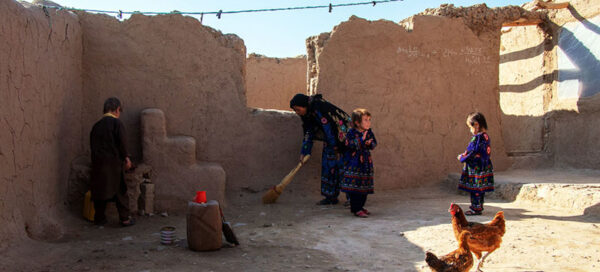
Anxiety in Afghanistan as Taliban struggles for legitimacy
Deborah Lyons, UN Special Representative and Head of the UN Assistance Mission in Afghanistan (UNAMA), said that despite an enhancement in the security situation, Afghans feel abandoned by the transnational community and anxious about their new leadership.
Emphasizing that the Taliban are authentically trying to present themselves as a Government, the Special Representative said that they’re constrained by a lack of coffers and a political testament that clashes with contemporary transnational morals of governance.
Also, the Taliban has neither earned the trust of utmost Afghans nor induced the citizens of their capacity to govern.
Against that tenuous background,Ms. Lyons stressed that the transnational community must remain engaged with Taliban leaders in order to shape a more positive unborn line.
Outlining her platoon’s early relations with the de facto Taliban administration, the Special Representative said engagements have been generally useful and formative.
They continue to seek transnational recognition as well as ways to overcome the trust deficiency that they fete exists between them and the transnational community.
The Taliban continue to give security to UN staff and allow broad philanthropic access, including for women philanthropic workers, allowing access to corridor of the country that hadn’t been visited for 15 times.
“ Be assured that we haven’t nestled down from raising delicate issues with the Taliban, particularly on women’s rights, girls’ education and on reports … of importunity andextra-judicial killings”, underlined the UN functionary.
s. Lyons said that in general, the Taliban have honored the transnational community’s enterprises – frequently admitting miscalculations and trying to address them.
Still, they also make clear that for now there are limits to the concessions they’re willing to make on certain issues, including those relating to the rights and freedoms of women.
While the de facto authorities had originally assured the global community that they would cover women’s rights within Islamic law – including the right to education – there has nonetheless been a general curtailment of their abecedarian rights and freedoms.
From a woman’s right to work, to their absence from major decision- making fora and elderly situations of the civil service, their limitations have come egregious.
Ms. Lyons told Council members that Afghans generally feel alive over Taliban intentions.
Among their top enterprises are the country’s paralyzed frugality, the incapability to withdraw plutocrat and fears of not being suitable to feed themselves during the downtime.
The UN has also entered believable reports of house quests andextra-judicial killings of former Government security help and officers.
Meanwhile to date, the Taliban has proven its incapability to stem the expansion of Islamic State in Iraq and the Levant-Khorasan Province (ISIL-KP), where terrorist attacks have increased from 60 in 2020 to 334 so far this time.
In that environment,Ms. Lyons called for the gradational establishment of formative relations between Afghanistan and the world at large.
“ The stylish way to promote stability and unborn transnational support is for the Taliban to avoid the insulation that characterized their former experience in power”, stressed the Special Representative.

